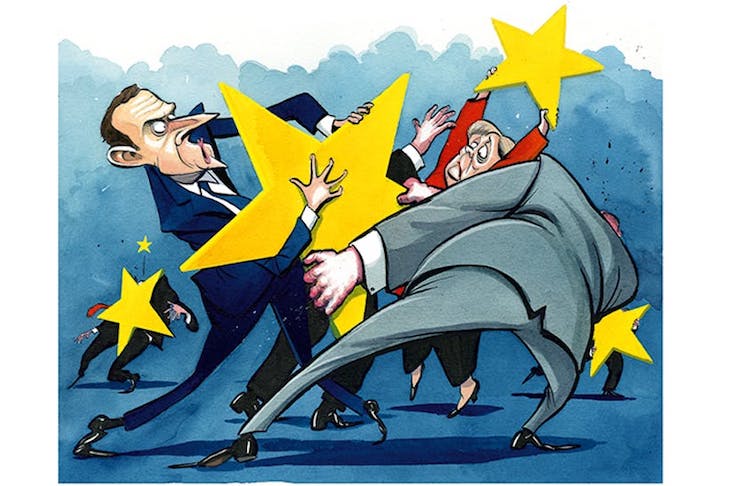The Brexit talks are heading for a breakdown. Next week’s meeting will be a stand-off between the two sides. As I say in the magazine this week, the EU will make its demands on level playing field provisions and the UK will say they are unacceptable and render the talks pointless. The government’s hope is that by saying it will walk out of the talks in June it can persuade the EU to shift from its current, maximalist position.
The EU will offer carrot and stick in these talks. They’ll make clear that if the two sides agree a trade deal, they’ll go for a light touch at the border designed to minimise disruption. But if the talks break down, they’ll take a fingernail approach to border enforcement. They think that the threat of the garden of England turning into a lorry park will trump concerns over sovereignty and the level playing fields.
What puzzles many in government is how the EU (which has a history of misreading British public opinion) can genuinely believe this will work. First, Boris Johnson doesn’t just lead a Brexit government; its central conviction is that the whole point of leaving the EU is to do things differently. The more the EU seeks to tie the UK down, the more convinced the British side becomes of the benefits of divergence.
Then there is the 80 seat Tory majority to consider. If the two sides decide to indulge in tit-for-tat measures at the border, that will cause pain to consumers and the wider economy. But Boris Johnson does not have to face his voters again until 2024. Nearly every other European leader is up for re-election before then.
Those who want a deal should be hoping for a row sooner rather than later. The two sides need to get it out of their systems and realise that the other is serious about their position before they can start negotiating properly.
At the moment, there is an air of despair about the prospects for a deal even among those who are normally optimists. Yet the required compromises are hiding in plain sight. On the ‘level playing field’, for example, the UK could say that while it will not follow EU rules, it will maintain its already high standards. The UK exceeds EU requirements on the minimum wage, holiday rights, maternity leave and more. On the environment, our pledge to hit ‘net zero’ by 2050 was made months before the EU said it would do the same. Britain could pledge not to backtrack on any of this — and agree that if it does, the EU could respond by imposing tariffs and quotas.
But when Tory ministers talk about the opportunities of Brexit, they talk about the ability to diverge from EU rules. The UK’s desire to make itself into a high-tech hub means that when it comes to data protection, for instance, it is likely to want to diverge from the EU’s cumbersome GDPR regime.
If talks fail, there will be serious and avoidable consequences — and not just for trade. An EU-UK alliance makes sense for both sides. It is simply not realistic to think that the two sides involved in an economic standoff could continue to be the closest of allies on foreign and security matters.
A UK government that knows its own mind, believes in the benefits of divergence and has a stable parliamentary majority is going to take a far more robust approach to these negotiations than the May government ever did. The EU — which has understandably come to view a lot of British tough talk as bluster — should appreciate that.







Comments